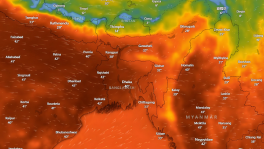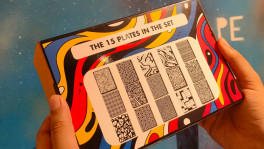The Midnight Sky: There’s no dawn at the end of George Clooney’s disastrously dull Netflix film
George Clooney’s direction sucks all the tension out of the movie, described as Gravity meets The Revenant

Fancy spending two hours wondering if George Clooney's beard has grown longer before your eyes? Well, it's your lucky day. The Midnight Sky is the movie for you.
Directed by Clooney himself, the big-budget science-fiction film does such a shoddy job of holding the audience's attention that it's a miracle it is even able to communicate its basic premise. I can almost imagine the Netflix pitch meeting for this. I wonder if it was the fastest green light in the history of Hollywood.
On paper, few ideas could have such delicious marketability. You have one of the most recognisable faces on the planet top-lining the picture, which sounds like a mash-up of two Oscar-winning films — Gravity and The Revenant — both of which also happen to be major box office hits. Netflix is said to have a data-driven approach to making 'content', but you don't need number-crunching computers to tell you that this is a no-brainer.
But let this be a lesson, kids. Just because something sounds appealing doesn't mean it actually is. In their haste to be in the George Clooney business, everyone seems to have overlooked the condition of the script. It's in severe need of polishing.
Written by The Revenant co-writer Mark L Smith and based on the book by Lily Brooks-Dalton, The Midnight Sky stars Clooney as a terminally ill scientist who stays behind on a ravaged Earth, while the remnants of humanity head off into space, looking for a planet to colonise or something.

Meanwhile on the scorched Earth, Clooney's character, Dr Augustine Lofthouse (what?), runs into a young girl named Iris. She appears to have been separated from her group, which by now is probably way past Ganymede. But there's more trouble incoming: a crew of astronauts on a scouting mission is on its way back to Earth, oblivious of the apocalypse. To warn them, Dr Lofthouse and Iris must travel across the tundra to a station with a strong radio signal.
It's a simple premise, royally complicated by Clooney, who seems hell-bent on giving his audiences more bang for their buck. So what should have been a straightforward survival thriller — half set in space and half on land, to add an interesting duality to the proceedings — turns into, at a conservative estimate, four-and-a-half movies all rolled into one.
In addition to the more obvious references to Gravity and The Revenant, Clooney also appears to be borrowing liberally from Interstellar, Oblivion, and War for the Planet of the Apes.
There's a tonal dissonance to the two distinct storylines in the film; a lack of urgency to the proceedings, despite time playing such a key role. And that's because Clooney's direction sucks all the tension out of the movie. A more seasoned hand might have worked wonders with the two race against time missions, unfolding in parallel to each other — Dr Lofthouse on Earth, literally dying, and the astronauts in space, also hurtling towards certain death. But the astronaut crew is so thinly written that the film has to introduce a meteor shower to inject some drama.
Meanwhile, on Earth, Dr Lofthouse loses his dialysis machine in a blizzard, but manages to hold onto little Iris. The storytelling is robotic, and Alexandre Desplat's overbearing score does it no favours. You're constantly being told what to feel — from wonder to whimsy to worry.
There's no dawn at the end of The Midnight Sky. It's a misfire of astronomical proportions. By the time a third act twist rears its head, as anticipated, you'll likely want to hurtle headfirst into an irradiated wasteland yourself.


 Keep updated, follow The Business Standard's Google news channel
Keep updated, follow The Business Standard's Google news channel
















